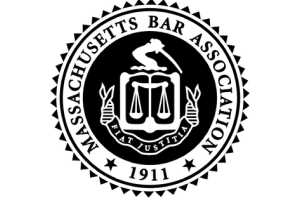Appeals Court Ruling in Commonwealth v. Wurtzberger Sparks Urgent Debate on the Definition of “Operation” in the Age of Modern Vehicle Technology
August 14, 2024.
In Commonwealth v. Wurtzberger, 22-P-764 (2024), the Massachusetts Appeals Court affirmed the conviction of a defendant for operating under the influence (OUI) in a municipal parking lot, ruling that such a lot, despite parking restrictions, qualifies as a “public way” when it provides unrestricted access to an abutting public road. The court also reaffirmed that being found in the driver’s seat with the vehicle’s electrical system engaged is sufficient to establish the element of operation under the statute.
Our Take:
The Appeals Court’s decision in Wurtzberger may seem like a straightforward affirmation of OUI principles, but Judge D’Angelo’s concurring opinion invites a deeper reflection on the evolving concept of “operation” in the context of modern automotive technology. His concurrence highlights a critical issue for the SJC: how do we define “operation” in an era where cars can be remotely controlled, started with the press of a button, or even driven autonomously?
The court’s decision reaffirmed that “operation” includes not just driving but also engaging a vehicle’s electrical system by, for example, turning the key to the “on” position, as was the case with Wurtzberger. However, Judge D’Angelo rightly questions whether this century-old definition, rooted in cases like Commonwealth v. Uski (1928), can justly be applied to cases where there was no reasonable inference of actual or intended driving. He also correctly questions whether current law adequately addresses the complexities introduced by modern vehicle technology.
Today, many vehicles no longer require a key to start. A driver can engage the engine or electrical systems with a mere push of a button. Some cars turn on automatically when they detect someone nearby with the key in their pocket. And some systems allow for remote starting via smartphone apps, where the driver might not even be near the car. These advancements blur the lines of what it means to “operate” a vehicle, particularly in the context of laws designed to prevent impaired driving.
Application of Uski to modern vehicles will prove to be a clumsy and imprecise endeavor, stretching the concept of operation well beyond the sensible. It risks over-penalizing individuals who may not pose any real threat or, conversely, under-regulating potentially dangerous behaviors that the current law was not designed to address.
Judge D’Angelo also touches on a critical issue that will only grow in relevance: the intersection of living spaces and vehicles. As economic pressures and lifestyle changes lead more people to live in vehicles like RVs or even standard cars, the question of what constitutes “operation” becomes more pressing. If someone lives in their vehicle, parked in an RV lot or on a street for an extended period, should simply sitting in the driver’s seat with the engine off qualify as “operation”? Does the law intend to criminalize the mere act of turning on the vehicle’s heating system on a cold night?
These scenarios are not hypothetical; they represent a growing segment of society. The rise of the “van life” movement and the increasing number of people living in their cars necessitate a legal framework that distinguishes between actual driving and the mere use of a vehicle’s systems while stationary. The current definition of operation fails to account for these nuances, potentially criminalizing behaviors that pose no public safety risk.
Judge D’Angelo’s opinion suggests that the SJC or the Legislature should take proactive steps to redefine “operation” in the context of modern technology. This redefinition should consider not just the activation of a vehicle’s engine but also the intent behind it. Is the individual preparing to drive, or merely using the vehicle as a living space or to power personal electronics?
Moreover, as vehicles become increasingly autonomous, the question of “operation” will become even more complex. If a car is in autopilot mode, with the driver not directly controlling it, does that still count as operation under OUI laws? What about future scenarios where a car might be completely autonomous? These are not just theoretical musings; they represent the future of mobility, and the law must evolve accordingly.





